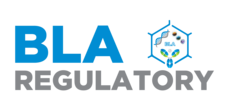The US FDA has created several expedited programs for drugs and biologics at various developmental stages. Those programs help to expedite the process for innovative drugs from bench to bed for needed patients. Some of these programs have specific requirements for clinical data to be eligible for application.
US FDA’s Expedited Programs for Serious Conditions: Drug Development Stages and Clinical Data.
February 13, 2025
1. Before IND Application: not necessarily need clinical data
- Fast Track Designation (FTD): It’s applicable to drugs intended for the treatment of serious or life-threatening conditions with unmet medical needs. The application for this designation does not necessarily require clinical data. Instead, it can be applied before IND applications based on pre-clinical research, disease severity, and lack of alternatives.
2. During IND development: need preliminary clinical data
- Fast Track Designation (FTD): FTD can be also applied during the IND stage with more pre-clinical or preliminary clinical data that can strengthen the application. For instance, good human safety data along with pre-clinical efficacy data can be beneficial.
- Breakthrough Therapy Designation (BTD): Requires drugs to have significant advantages over existing treatments for serious conditions. Application needs preliminary clinical data showing potential to improve clinical endpoints. In oncology, if a new drug causes tumor shrinkage in early trials, it might qualify.
- Regenerative Medicine Advanced Therapy Designation (RMAT): The drug is a regenerative medicine therapy, which is defined as a cell therapy, therapeutic tissue engineering product, human cell and tissue product, or any combination product using such therapies or products. Preliminary clinical evidence indicates that the drug has the potential to address unmet medical needs for such disease or condition.
3. Before NDA Application
- Pre-assessment for Accelerated Approval: Sponsors can plan for Accelerated Approval, if the drug targets a serious condition and has data from surrogate or intermediate endpoints predicting clinical benefit. This would speed up the NDA submission.
4. During NDA Application
- Accelerated Approval: For drugs treating serious or life-threatening diseases. Requires substantial clinical data on surrogate or intermediate endpoints predicting clinical benefit. In cancer treatment, if a drug shrinks tumors and it’s linked to better patient outcomes, it may be eligible, but confirmatory trials need post-approval.
- Priority Review: It can be applied when the drug can bring significant improvements to current available treatments of serious diseases. Clinical data are required to prove that the drug has outstanding performance in terms of safety and efficacy compared with existing therapies. For example, if a new cardiovascular drug can more effectively reduce the risk of heart attacks and has fewer side effects in clinical trials, these clinical data can support the application for priority review. It shortens the review time from 10 to 6 months.

